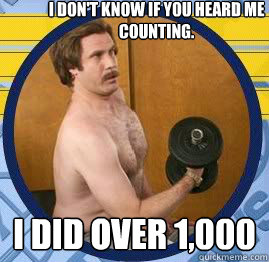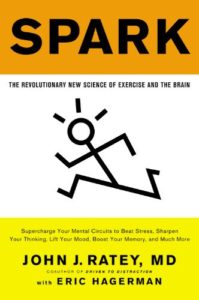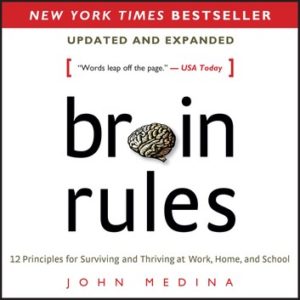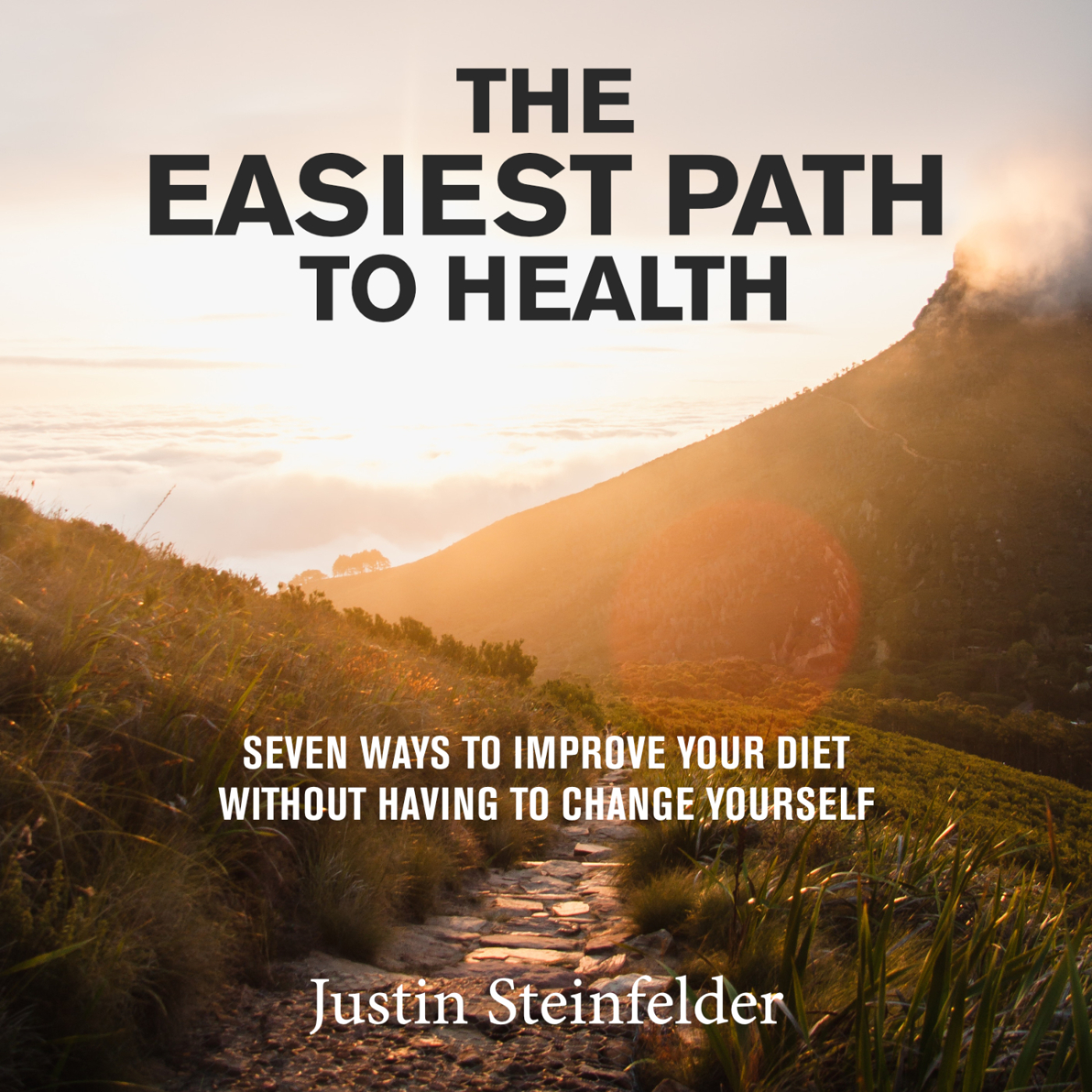Reading Time: ~8.5 minutes, or about 15% of the time the average person spends on Instagram daily.
Summary
For most of my life, I exercised for what I’d call the more superficial reasons: looking and feeling good. It isn’t that exercise cannot lead to these results— it often does. But research shows that abs and biceps may be better viewed as positive side-effects than serve as our principal motivators. A focus on them has been shown to be ineffective and even unhealthy.
In Part 1 of The Exercise Paradox, I explored why we resist exercise due to our warped perspectives. In this post, I reveal the less-known, but empirically more effective, sustainable, and ‘real’ reasons to exercise, along with the extraordinary results, and the research that underlies them.
***
Exercising For The ‘Wrong’ Reasons

Starting around the age of about 12, I got into exercise to be like my heroes — Michael Jordan, my dad, my uncle bob (a former bodybuilder), and, of course, Rocky. In 6th grade, my desire grew when attractive girls were swooning over Backstreet Boy, Nick Carter, and his 6-pack abs. So I hit the gym– for sports glory and the abs.
And, to my surprise and (short-term) satisfaction— it actually worked.
Exercise improved my performance on the field, won me ‘cool points’ with my buddies, and, whether or not girls liked the (mini) muscles, it improved my confidence. So, to be clear, It isn’t that exercise doesn’t help with athletic performance, body appearance, and confidence— It does. But is that the right question to ask?
Fast-forward about 15 years. I was still doing the exercises that had won me favor in school. Bench-pressing and squatting and rowing heavy weights. And I was still doing it for basically the same reasons— pride and prettiness (see: Ron Burgundy).
But, after sustaining several injuries, a question began resounding my head: Wait, why am I doing this again?!
Upon some soul-searching (cue the inspirational music), I discovered that these past motivations for exercise— muscles, self-worth, athletic performance— were no longer a priority. They didn’t reflect what I thought of as the most important things: doing good work that matters, meaningful relationships, learning, being healthy.
Luckily, around the same time, I stumbled across a few books and a bunch of research (cited below) that indicated other, better, reasons for exercise —the ‘real’ reasons — that more closely aligned with these more aspirational priorities. Curls and calf-raises soon dissipated.
This experience and research lead me to a conclusion: the primary purpose of exercise is health and longevity of the brain and body in pursuit of other desires and goals. Exercise is best viewed as a means to an end to give yourself the best chance to be— forgive the unforgivable phrasing— your ‘best-self.’ Looks, feelings, sport’s performance are all merely positive side-effects.
But what exactly is it about exercise that that allows you to better be the person you want to be?
For that, I consulted some experts…
Exercising for the ‘Right’ Reasons (According To the Experts)
“WE ALL KNOW that exercise makes us feel better, but most of us have no idea why. We assume it’s because we’re burning off stress or reducing muscle tension or boosting endorphins, and we leave it at that. But the real reason we feel so good when we get our blood pumping is that it makes the brain function at its best, and in my view, this benefit of physical activity is far more important—and fascinating—than what it does for the body. Building muscles and conditioning the heart and lungs are essentially side effects. I often tell my patients that the point of exercise is to build and condition the brain.” Spark, Dr. John Ratey
Spark

In his great book, Spark, Dr. John Ratey, a Harvard Professor of Psychiatry, sets out to shift the current mindset on exercise— that it is primarily for fat-loss, muscular-awesomeness, or even muscle-conditioning. Based on his review of the neuroscience and physiology research, Dr. Ratey concluded that the primary purpose of exercise is to condition and increase performance and potential of the brain. He says simply: “To keep our brains at peak performance, our bodies need to work hard.”
So what does this mean practically? Ratey gives a simple, straightforward example:
“If you had half an hour of exercise this morning, you’re in the right frame of mind to sit still and focus on this paragraph, and your brain is far more equipped to remember it.”
Ratey goes on to describe the many more of the benefits of exercise, including what it can do to prevent, relieve, or even reverse psychiatric disorders:
“I want to cement the idea that exercise has a profound impact on cognitive abilities and mental health. It is simply one of the best treatments we have for most psychiatric problems.”
The book comes to a convincing conclusion:
“exercise is the single most powerful tool you have to optimize your brain function—is based on evidence I’ve gathered from hundreds and hundreds of research papers, most of them published only within the past decade.”
Bottom line: we operate at our best when we exercise.
Brain Rules

John Medina, a molecular biologist, took a similar position in Brain Rules. I’ll quickly bullet-point some highlights:
How it actually works. “Exercise gets blood to your brain, bringing it glucose for energy and oxygen to soak up the toxic electrons that are left over. It also stimulates the protein that keeps neurons connecting.”
Prevention of Dementia and Alzheimer’s: “Your lifetime risk for general dementia is literally cut in half if you participate in physical activity. Aerobic exercise seems to be the key. With Alzheimer’s, the effect is even greater: Such exercise reduces your odds of getting the disease by more than 60 percent.”
Cognitive Performance: “Exercisers outperform couch potatoes in tests that measure long-term memory, reasoning, attention, and problem-solving skill. The same is true of fluid-intelligence tasks, which test the ability to reason quickly, think abstractly, and improvise off previously learned material in order to solve a new problem.”
Exercise For Kids: though Medina admits kid fit research is still limited, the initial results are promising. “Physically fit children identify visual stimuli much faster than sedentary ones. They appear to concentrate better. Brain-activation studies show that children and adolescents who are fit allocate more cognitive resources to a task and do so for longer periods of time.”
Ratey and Medina agree, the most compelling reason to exercise is how it benefits your brain. The secondary benefits are impacts on the heart, lungs, blood. Motivations such as weight-loss and appearance, the reasons many of us exercise, seem to be tertiary, at best.
Further Reading
For those interested in actual research, here are a few studies highlighting several exercise benefits:
- Learning. 2017 Study showing exercise significantly improved language learning
- Performance. 2012 study showing both immediate and longer-term impacts of exercise on college students in the following areas: self-control, stress levels, performance on cognitive testing, mood, less smoking, better sleep.
- Stress. 2016 European randomized, controlled study showing exercise significantly boosted ability to buffer effects of stress
- Exercise and Child Development. This is a recent review of all of the available literature on the impacts of exercise on child development. The study cited exercise’s improvements in the kids’ focus, thinking, memory, emotional regulation.
Conclusion: How This Information Helped Me (and Others) Exercise More
Ryan Holiday recently had an exercise epiphany.
Holiday, a best-selling author and entrepreneur who works with some of the top brands in the world, always vaguely knew that exercise was ‘good’ but viewed it as something took time away from his writing and business. That was until he had a realization: exercise is not something he does in addition to his job; it’s part of his job. Holiday now believes he (and everyone) has an obligation to exercise to put him in the best position to be his best.
And it’s not just Holiday— it’s everyone who wants their brain to work best: Branson, Zuckerberg, Oprah, Gates, Anna Wintour (Vouge), Arianna Huffington. Etc. Malcom Gladwell has said the first thing he would do if he was the CEO of major corporation would be to create a daily exercise hour.
My experience is very similar to Holiday’s (and the people above). When he realized that exercise actually made him better at everything else, it became much more essential to get to the gym. And because it was more important, it became far easier.
But here’s the crucial point. Not only does Holiday now want to get to the gym, he considers it part of his daily duty. Not just to be the best writer he can be— but to be the best person.
As I showed in Part I, the research bares this out. The best motivation to get to move is not losing a few pounds; it’s to be a better, smarter, well-balanced person. The pounds fall off as a bonus, but a focus on them can actually have the opposite effect.
For those of us (or our friends) who don’t currently engage in the recommended minimum exercise of at least 150 minutes per week (or for those of our friends), it might be worth it to ask yourself (or them) a few questions:
- Can it possibly make sense to skip exercise in order to get more work done if exercise immediately improves brain function?
- How about taking care of the kids? Is there anyway we won’t be better parents thinking more clearly, lowering anxiety and stress, and sleeping better?
- How about already being in aesthetically “good shape” or skinny or not caring cause ‘I’m married?’? Do any of these make sense as reasons to skip exercise in light of the research?
The research-based reason to exercise is clear: strengthening our bodies and brains to put us in the best position to do and be whatever we desire.
The next time you have a big meeting at work, or you want to be present for your kids, or you’re feeling anxious or stressed, or you have a big exam— seems like you may want to hop on a bike for 20 minutes first…
***
NOW, YOU MIGHT BE WONDERING — ok, exercise is good for the brain. But what kind? How long do I need to exercise?
In the final installation of the Exercise Paradox, I’ll tell you what seem to be the best kinds of exercise and give you some practical tips on how to incorporate it more into your life.
For now, take a hike…
Literally… get the eff up and go take a brisk walk. You’ll come back smarter.
Besos,
Justy



2 Comments on “Research Says: Don’t Exercise For Your Belly. Here’s a better reason. (Exercise Paradox Pt. II)”
One of your best and most important blogs yet in my humble and non-expert opinion.
Thanks, Jord. I love all non-expert opinions…to the extent that they shower me with praise. 🙂